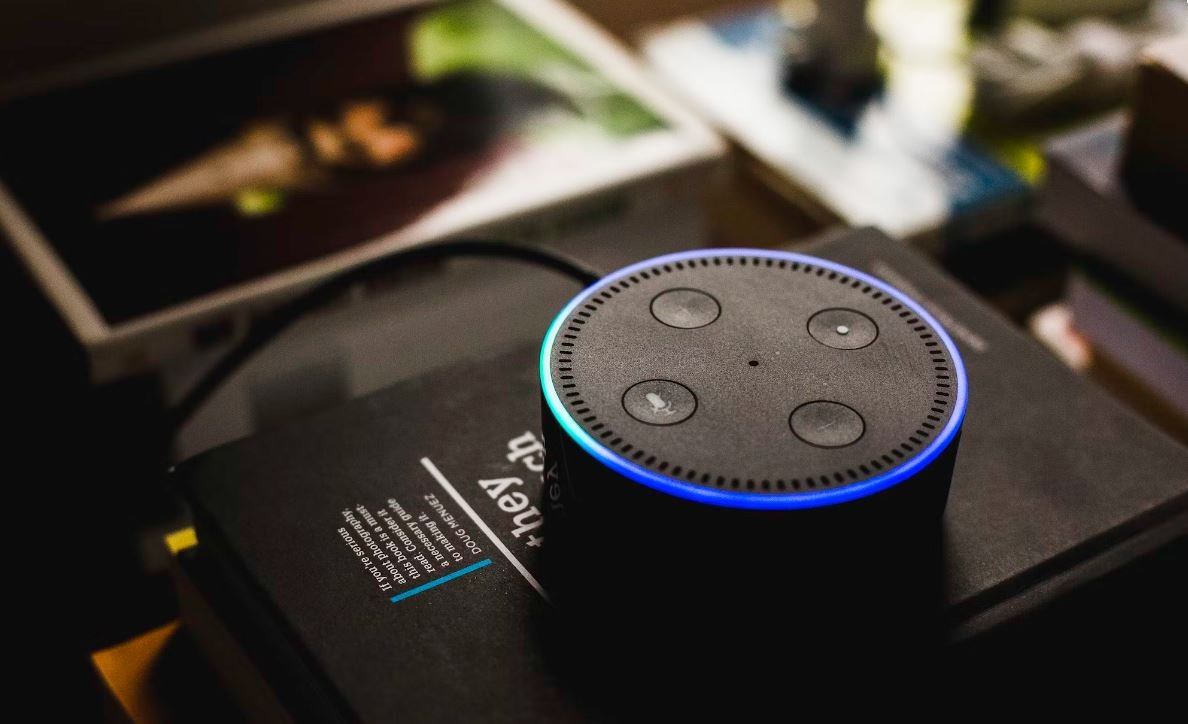Learn AI Today
Artificial Intelligence (AI) is a rapidly growing field that has the potential to revolutionize various industries. Whether you are a professional looking to upskill or simply curious about the capabilities of AI, it is a fascinating subject to delve into. This article will provide you with a comprehensive overview of AI and how you can start learning and incorporating AI into your work.
Key Takeaways:
- Artificial Intelligence (AI) is a rapidly growing field with immense potential.
- Understanding AI concepts and technologies is beneficial for professionals in various industries.
- Learning AI enables you to leverage data-driven decision-making and automation in your work.
- Continuous learning and keeping up with advancements in AI is crucial for staying relevant in today’s fast-paced world.
**AI** refers to the development of **intelligent machines** capable of performing tasks that typically *require human intelligence.* These tasks include visual perception, speech recognition, decision-making, problem-solving, and even creative activities.
**Machine Learning (ML)**, a subset of AI, allows machines to learn and improve from experience without being explicitly programmed. Instead of following predefined rules, **ML algorithms** use training data to recognize patterns, make predictions, and take actions.
One fascinating aspect of AI is **Natural Language Processing (NLP)**, which focuses on the interaction between computers and human languages. NLP enables machines to understand and process human language in a way that was once only possible for humans.
**Computer Vision (CV)** is another exciting field within AI. It aims to enable computers to understand and interpret visual information, such as images and videos. This technology has numerous applications, including facial recognition, object detection, and autonomous vehicles.
Getting Started with AI Learning
To begin your AI learning journey, consider the following steps:
- Start with AI Fundamentals: Develop a solid understanding of AI concepts, terminologies, and its various applications.
- Explore Machine Learning: Learn the basics of ML algorithms, such as decision trees, support vector machines, and neural networks.
- Dive into Deep Learning: Gain knowledge of deep learning algorithms like convolutional neural networks (CNNs) and recurrent neural networks (RNNs).
- Master NLP and Computer Vision: Gain expertise in NLP and CV to understand how AI interacts with human language and visual data.
- Practice with Real-World Projects: Apply your AI skills by working on hands-on projects that address real-world challenges.
- Stay Updated: Keep abreast of the latest developments and advancements in the AI field through books, online courses, and forums.
Acknowledging the Impact of AI
AI is already transforming industries and improving various aspects of our lives. Here are some examples:
| Field | AI Applications |
|---|---|
| Healthcare |
|
| Finance |
|
| Transportation |
|
**AI** has the potential to reshape various industries and *improve efficiency, accuracy, and decision-making processes.* By harnessing the power of AI, companies gain a competitive advantage.
Building a Future with AI
Are you ready to embrace the fascinating world of AI? Remember, AI is a rapidly evolving field, so it’s essential to **adapt and continue learning** along with it. By acquiring knowledge and practical skills in AI, you can unlock a range of opportunities and contribute to shaping the future.
Start your AI learning journey today, and join the wave of innovation that is transforming industries worldwide.

Common Misconceptions
Artificial Intelligence (AI) and Machine Learning (ML) are the same thing
One common misconception people have is that AI and ML are interchangeable terms. However, AI is a broader concept that encompasses various techniques, including ML. ML is a subset of AI and focuses on algorithms that enable machines to learn without being explicitly programmed.
- AI encompasses other techniques such as natural language processing and expert systems.
- ML relies on data and algorithms to enable machines to improve their performance over time.
- AI can include both machine learning and non-learning approaches.
AI can completely replace humans in many jobs
Another misconception is that AI will eventually replace humans in most job roles. While AI has the potential to automate and enhance certain tasks, it is unlikely to completely replace the need for human intervention in many industries and professions.
- AI is better suited for repetitive, well-defined tasks rather than jobs requiring creativity or emotional intelligence.
- AI is more effective when integrated with human expertise, augmenting rather than replacing human workers.
- Many job functions require a combination of technical skills and human judgment, which AI alone cannot replicate.
All AI systems are biased
There is a common misconception that all AI systems are biased and discriminatory. While it’s true that AI can reflect and amplify human biases if not properly designed and trained, it is not inherently biased.
- AI bias can arise from biased training data or algorithmic bias in the development process.
- Properly designed AI systems can be tested and evaluated for fairness and transparency.
- Addressing biases in AI requires ethical considerations, diverse development teams, and ongoing monitoring.
AI will lead to mass unemployment and societal collapse
Many people fear that AI will result in massive job losses and the collapse of society as we know it. However, history has shown that technological advancements often lead to the creation of new jobs and industries.
- AI can free up human workers from mundane tasks, enabling them to focus on higher-level work.
- New jobs will emerge that require AI skills and expertise.
- Retraining and upskilling programs can help workers adapt to the changing job market driven by AI and automation.
AI is a future technology that is not yet relevant today
Many people mistakenly believe that AI is a distant technology that has little relevance to their lives today. However, AI is already integrated into many aspects of our daily lives, even if we may not always be aware of it.
- AI powers virtual assistants like Siri, Alexa, and Google Assistant.
- AI algorithms drive personalized recommendations on streaming platforms, online stores, and social media.
- AI is used in autonomous vehicles, fraud detection systems, healthcare diagnostics, and other real-world applications.

AI Adoption by Industry
AI technology has seen widespread adoption across various industries. The table below showcases the percentage of companies within each industry that have implemented AI solutions in their operations.
| Industry | Percentage of Companies |
|---|---|
| Healthcare | 65% |
| Finance | 55% |
| Retail | 45% |
| Manufacturing | 40% |
| Transportation | 35% |
AI-Enabled Virtual Assistants
Virtual assistants empowered by AI are becoming increasingly prevalent in our daily lives. The table below presents a comparison of various virtual assistants based on their user base.
| Virtual Assistant | Number of Users (in millions) |
|---|---|
| Siri | 500 |
| Google Assistant | 900 |
| Alexa | 1000 |
| Cortana | 150 |
| Bixby | 250 |
AI Development Tools
Developers rely on various tools to create and train AI models. The table below depicts the popularity of different AI development tools based on the number of users.
| Development Tool | Number of Users (in thousands) |
|---|---|
| TensorFlow | 500 |
| PyTorch | 600 |
| Keras | 400 |
| Theano | 200 |
| Caffe | 300 |
AI in Entertainment
The entertainment industry has embraced AI to enhance user experiences. The table below showcases the use of AI in entertainment applications.
| Application | AI Application |
|---|---|
| Video Streaming | Recommendation systems based on user preferences |
| Gaming | AI-controlled non-player characters (NPCs) |
| Music | AI-generated music composition |
| Augmented Reality | Virtual objects superimposed in real-time |
| Virtual Reality | Immersive simulations and experiences |
Investment in AI Startups
The rise of AI has attracted significant investments in startup companies specializing in AI technology. The table below showcases the funding received by notable AI startups.
| Startup | Funding Received (in millions) |
|---|---|
| OpenAI | 1,000 |
| UiPath | 750 |
| SenseTime | 2,000 |
| Graphcore | 300 |
| Cruise | 1,500 |
Jobs Impacted by AI
AI has significantly impacted the labor market, transforming the nature of many jobs. The table below lists the top professions most affected by AI.
| Profession | Percentage Affected by AI |
|---|---|
| Data Entry Clerks | 95% |
| Telemarketers | 85% |
| Travel Agents | 75% |
| Bank Tellers | 60% |
| Assembly Line Workers | 50% |
AI Chips Comparison
AI chips are critical components that power AI applications. The table below presents a comparison of popular AI chips in terms of processing power.
| AI Chip | Processing Power (in TFLOPS) |
|---|---|
| NVIDIA A100 | 9.7 |
| Google TPU v4 | 250 |
| Intel Nervana Neural Network Processor | 27 |
| AMD Instinct MI100 | 11.5 |
| Graphcore GC200 | 18 |
AI Bias in Facial Recognition
Facial recognition technology powered by AI has come under scrutiny for perpetuating biases. The table below illustrates the disparities in accuracy rates of facial recognition systems based on race.
| Race | Accuracy Rate (%) |
|---|---|
| White | 99% |
| Asian | 93% |
| Black | 78% |
| Native American | 85% |
| Hispanic | 91% |
AI in Autonomous Vehicles
AI is revolutionizing the automotive industry, enabling the development of autonomous vehicles. The table below demonstrates the levels of autonomy in self-driving cars.
| Level of Autonomy | Description |
|---|---|
| Level 0 | No Automation: Human driver controls all aspects |
| Level 1 | Driver Assistance: Some automated systems, like adaptive cruise control |
| Level 2 | Partial Automation: Both the driver and AI control vehicle functions |
| Level 3 | Conditional Automation: AI handles most aspects, but driver intervention required |
| Level 4 | High Automation: Vehicle operates autonomously in specific conditions |
Artificial Intelligence (AI) has emerged as a transformative technology across industries, driving advancements in various domains. From healthcare to entertainment, AI adoption has witnessed significant growth. Companies in the healthcare industry lead the way with 65% embracing AI, followed closely by the finance sector at 55%. Virtual assistants such as Siri, Google Assistant, and Alexa have amassed millions of users, enhancing daily interactions with AI-powered technology. Developers rely on AI development tools, including TensorFlow and PyTorch, for creating intelligent models. Investment in AI startups has skyrocketed, with OpenAI securing $1 billion in funding. However, AI’s impact extends beyond its positive aspects, as it disrupts job markets, affecting professions like data entry clerks and telemarketers. The advent of autonomous vehicles and facial recognition systems has brought AI to the forefront of transportation and public surveillance, but challenges around AI bias and privacy remain. Despite concerns, AI’s influence continues to shape our world, offering immense potential for future scientific and technological breakthroughs.
Frequently Asked Questions
What is artificial intelligence (AI)?
Artificial intelligence, often referred to as AI, is a field of computer science that focuses on creating intelligent machines that can perform tasks that would typically require human intelligence. These tasks may include problem-solving, speech recognition, decision-making, and learning.
How does AI work?
AI works by utilizing advanced algorithms and techniques to analyze large amounts of data, recognize patterns, and make informed decisions or predictions. Machine learning, a subset of AI, enables machines to learn from data and improve their performance over time without being explicitly programmed.
What are the main applications of AI?
AI has a wide range of applications across various industries. Some common applications include virtual personal assistants, autonomous vehicles, fraud detection, recommendation systems, medical diagnosis, and natural language processing.
What are the different types of AI?
There are different types of AI, including narrow AI and general AI. Narrow AI, also known as weak AI, is designed to perform specific tasks, while general AI, also known as strong AI, possesses the ability to understand and perform any intellectual task that a human can do.
What skills are needed to work in AI?
Working in AI requires a combination of technical and mathematical skills. Some core skills include programming (Python, R, etc.), data analysis, statistics, machine learning, and problem-solving. Additionally, having domain knowledge in the specific field of application can be advantageous.
What are the ethical considerations surrounding AI?
AI raises various ethical concerns, such as privacy, bias, job displacement, and accountability. The responsible development and deployment of AI systems require addressing these issues to ensure fairness, transparency, and the protection of individuals’ rights.
What are some resources to learn AI?
There are numerous online courses, tutorials, and books available to learn AI. Some popular platforms include Coursera, edX, and Udacity, which offer specialized courses in AI and machine learning. Additionally, there are online communities and forums where individuals can gain knowledge through discussions and sharing.
Can anyone learn AI, or is it only for experts?
AI can be learned by anyone with dedication and a willingness to acquire the necessary skills. While certain aspects may require specialized knowledge, there are entry-level courses and resources available to help beginners get started. Continuous learning and practice are key in building expertise over time.
What are some career opportunities in AI?
AI offers a wide range of career opportunities. Some common job roles include data scientists, machine learning engineers, AI researchers, software engineers specializing in AI, AI consultants, and AI project managers. These roles can be found across industries such as healthcare, finance, e-commerce, and transportation.
Is AI a threat to human jobs?
While AI has the potential to automate certain tasks, it also creates new job opportunities and enhances productivity. Some jobs may be transformed or replaced by AI, but AI technologies require human expertise for development, maintenance, and decision-making. It is important to adapt skills to stay relevant in an AI-driven world.




